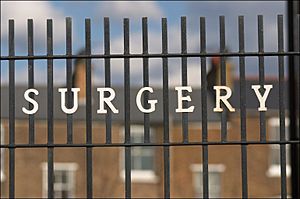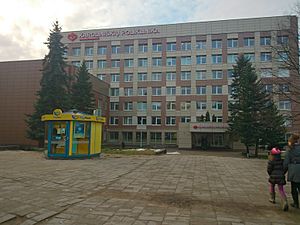Clinic facts for kids
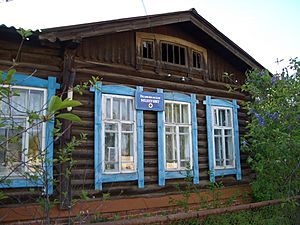

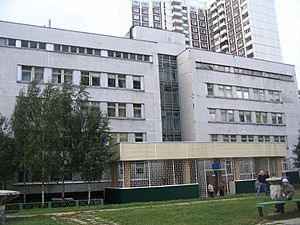
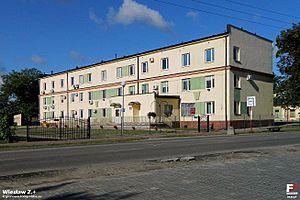
A clinic is a place where people go to get healthcare. It mainly helps outpatients. Outpatients are people who visit for treatment but do not stay overnight. Clinics are different from larger hospitals. Hospitals usually have special treatments and keep inpatients overnight.
Clinics can be run by private groups or by the government. They often provide basic healthcare for people in local areas. Many clinics are run by one or more general practitioners (GPs). GPs are doctors who help with many common health problems.
Other clinics focus on one type of care. For example, a physical therapy clinic helps people with movement problems. A psychology clinic helps people with their thoughts and feelings. Some companies or governments also have their own clinics for their employees. In places like China, many village clinics help people in rural areas.
In countries like India, Russia, and Africa, mobile clinics travel to help people in the countryside. Some of these clinics also use traditional medicine. This includes practices like ayurvedic medicine.
If you have a minor injury or illness, you might go to a clinic. A nurse or other health worker will check you first. If you need more help, they might send you to a hospital. Clinics can also have equipment like X-ray machines. Doctors at clinics can send you to a specialist. A specialist is a doctor who is an expert in one specific area of medicine.
Contents
Where the Word "Clinic" Comes From
The word clinic comes from an old Greek word, klinein. This word means "to lean" or "to lie down." The Latin word clinicus is very similar. Long ago, the word clinic was used for someone who was baptized while sick in bed.
Different Types of Clinics
There are many kinds of clinics. They all offer services without needing an overnight stay. Some are run by the government, and some are private.
General Clinics
- A general outpatient clinic helps with common health issues. You can get a diagnosis or treatment there.
- A polyclinic offers many different healthcare services. This can include tests and treatments, all in one place.
Specialized Clinics
- A specialist clinic focuses on specific diseases or body parts. For example, a heart clinic helps with heart problems.
- A fertility clinic helps people who want to have children.
- An ambulatory surgery clinic performs simple surgeries. These surgeries are not as complex as those done in a hospital. Patients can go home the same day.
Community Clinics
- In Quebec, Canada, there are CLSC clinics. These are free clinics funded by the government. They offer services like social workers.
- In the United States, a free clinic offers free or low-cost healthcare. These clinics help people who do not have health insurance.
- A retail-based clinic is found in places like supermarkets. These clinics offer quick health checks. They are often staffed by nurse practitioners.
Images for kids
-
Storefront clinic in Manhattan
See also
 In Spanish: Clínica para niños
In Spanish: Clínica para niños
 | Valerie Thomas |
 | Frederick McKinley Jones |
 | George Edward Alcorn Jr. |
 | Thomas Mensah |


